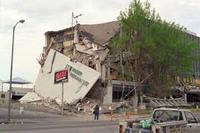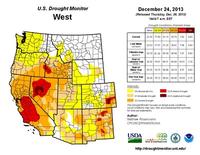-
Former FERC chair calls for mandatory security standards for high-voltage substations
Jon Wellinghoff, the former chairman of the Federal Energy Regulatory Commission(FERC), is leading a crusade to improve physical security around the nation’s electrical grid. Following a 16 April 2013 sniper attack on a San Jose, California substation he is urging Congress to give federal agencies the authority to demand improved security around electrical substations. “This isn’t about this substation or this organized attack,” Wellinghoff said of the California incident. “This is more about the larger issue of physical security of these high-voltage substations nationwide and the need to ensure that some defensive measures start to be put in place.”
-
-
Israeli legal expert urges development of ethics code for cyberwarfare
Col. Sharon Afek, former deputy military advocate general, says that countries would benefit from developing an ethics code to govern cyber warfare operations. He notes that existing law already prohibits cyber operations which would directly lead to loss of life, injury, or property damage, such as causing a train to derail or undermining a dam. “Israel faces a complex and challenging period in which we can expect both a cyber arms race with the participation of state and non-state entities, and a massive battle between East and West over the character of the future legal regime,” he writes. He acknowledges, though, that only a catastrophic event like “Pearl Harbor or Twin Towers attack in cyberspace” would accelerate developments in this area.
-
-
Lawmakers want mandatory security standards for national grid
Lawmakers have urged the imposition of federal security standards on grid operator in order to protect the U.S. national electric grid from attack. The new push follows stories, first reported in the Wall Street Journal reported last Wednesday, about a 16 April 2013sniper attack which disabled seventeen transformer in a San Jose, California substation for twenty-seven days, causing about $16 million in damage. Federal cybersecurity standards for protecting the grid are in place and mandated, but rules for protecting physical sites such as transformers and substations are voluntary.
-
-
Coastal areas must adapt to sea-level rise and storm surges or suffer massive damage
A new study presents, for the first time, comprehensive global simulation results on future flood damages to buildings and infrastructure in coastal flood plains. Drastic increases in these damages are expected due to both rising sea levels and population and economic growth in the coastal zone. Asia and Africa may be particularly hard hit because of their rapidly growing coastal mega-cities, such as Shanghai, Manila, and Lagos.
-
-
Attack on California power station heightens concerns about grid security
Security experts are concerned that last year’s unsolved attack on an electrical-power substation in San Jose, California, is but a prologue to similar attacks which, if executed simultaneously and in a coordinated fashion against several such substations, could cripple the U.S. power grid. The transformers at the substation, vital for regional power distribution, were shot at by several gunmen and disabled for twenty-seven days. What is especially worrisome, security exert note, is that the attack appeared to have been carried out by people with some training, although the FBI said the agency does not think it was the act of terrorists.
-
-
New software obfuscation system a cryptography game changer

A team of researchers has designed a system to encrypt software so that it only allows someone to use a program as intended while preventing any deciphering of the code behind it. This is known in computer science as “software obfuscation,” and it is the first time it has been accomplished. Previously developed techniques for obfuscation presented only a “speed bump,” forcing an attacker to spend some effort, perhaps a few days, trying to reverse-engineer the software. The new system puts up an “iron wall,” making it impossible for an adversary to reverse-engineer the software without solving mathematical problems that take hundreds of years to work out on today’s computers — a game-change in the field of cryptography.
-
-
New state-of-the-art cybersecurity resource available to software developers
Cybercrime is booming; it is an estimated $100 billion industry in the United States and shows no signs of slowing down. Attackers have an arsenal of weapons at their disposal, including social engineering — or phishing — penetrating weak security protocols and exploiting software vulnerabilities that can serve as an “open window” into an organization’s IT environment. Closing those windows requires effective and accessible tools to identify and root out software vulnerabilities. Supported by a $23.4 million grant from DHS’s Science and Technology Directorate (S&T), the Software Assurance Marketplace, or SWAMP, provides a state-of-the-art facility that serves as an open resource for software developers, software assurance tool developers, and software researchers who wish to collaborate and improve software assurance activities in a safe, secure environment.
-
-
Quake-vulnerable concrete buildings in Los Angeles area identified

Researchers have identified nonductile concrete buildings constructed before roughly 1980 in the Los Angeles area. This category of buildings is known from experience in previous earthquakes to have the potential for catastrophic collapse during strong earthquakes. Nonductile concrete buildings were a prevalent construction type in seismically active zones of the United States before the enforcement of codes for ductile concrete which were introduced in the mid-1970s. A companion study estimates that approximately 17,000 nonductile reinforced concrete buildings are located in the most highly seismic areas of California. More than seventy-five million Americans in thirty-nine states live in towns and cities at risk for earthquake devastation.
-
-
DARPA makes agency-sponsored software, publications available to R&D community
DARPA has invested in many programs that sponsor fundamental and applied research in areas of computer science, programs which have led to new advances in theory as well as practical software. The R&D community has asked about the availability of results, and now DARPA has responded by creating the DARPA Open Catalog, a place for organizing and sharing those results in the form of software, publications, data, and experimental details. The Web site aims to encourage communities interested in DARPA research to build off the agency’s work, starting with big data.
-
-
Protecting cities from floods cheaper than post-flood damage repairs

Researchers say that global warming is here to stay, and thus it is time to start making plans for dealing with the inevitable flooding which will occur as ocean levels rise as a result of warmer water and melting snow and ice. Approximately a billion people currently live in areas which are most at risk — low-lying coastal areas. It is not likely that towns and cities will be moved farther inland, so other measures need to be taken. The researchers say that flood prevention strategies are well established, for example, building levees, barrier islands, etc., so it is not difficult to draw up estimates for such schemes for individual areas.
-
-
Total California water supplies at near-decade low

Advisory from UC Center for Hydrologic Modeling finds California’s statewide averages of snow, surface water, and soil moisture near 10-year lows. The threat of multi-year period of unsustainable groundwater depletion imminent if drought continues. The data show particularly steep water losses between November 2011 and November 2013, the early phase of the current drought. The researchers estimate that the Sacramento and San Joaquin River basins have already lost ten cubic kilometers of fresh water in each of the last two years — equivalent to virtually all of California’s urban and household water use each year.
-
-
Making the U.S. grid sturdier, smarter, and more secure to thwart blackouts

In August 2003, fifty million customers throughout the northeastern United States and southeastern Canada lost power for up to two days. More than ten years later, the U.S. electric power system continues to be challenged. In the United States, 149 power outages affecting at least 50,000 customers occurred between 2000 and 2004, a number which grew to 349 between 2005 and 2009. In 2012, the prolonged power outages in New York and New Jersey caused by Hurricane Sandy once again demonstrated the system’s vulnerability. A broad, multidisciplinary effort by Georgia Tech researchers aims to revolutionize the delivery of electricity, advance the smart grid, thwart blackouts, integrate renewable energy sources, and secure utilities from cyberattacks.
-
-
Chemical, defense companies subject to Chinese Nitro attacks
More and more chemical and defense companies around the world are victims of Nitro attacks. These attacks, launched by government-backed Chinese hackers, install PoisonIvy, a Remote Access Tool (RAT) stealthily placed on computer systems to steal information. The majority of the computers infected belong to firms in the United States, Bangladesh, and the United Kingdom.
-
-
National Guard units help states ward off cyberattacks
Governors across the United States are mobilizing their states’ National Guard units to combat threats from cyberattacks. The state of Washington was the first state to assign the state’s National Guard cybersecurity responsibilities. The state recognized the potential of its National Guard as a cyberforce when it realized that many of its soldiers, who are full-time employees and part-time soldiers, worked for tech employers such as Google, Boeing, Cisco, Verizon, and Microsoft.
-
-
Barrier technology strengthens protection at Navy ports
Advanced technology rules the day in modern warfare — yet one very real threat to the U.S. Navy comes from a simple but deadly enemy strategy: small speed boats laden with explosives ramming into ships in harbor. Now a new maritime security barrier, developed with support from the Office of Naval Research (ONR), could provide a quantum leap in existing sea-port protection.
-
- All
- Regional
- Water
- Biometrics
- Borders/Immig
- Business
- Cybersecurity
- Detection
- Disasters
- Government
- Infrastructure
- International
- Public health
- Public Safety
- Communication interoperabillity
- Emergency services
- Emergency medical services
- Fire
- First response
- IEDs
- Law Enforcement
- Law Enforcement Technology
- Military technology
- Nonlethal weapons
- Nuclear weapons
- Personal protection equipment
- Police
- Notification /alert systems
- Situational awareness
- Weapons systems
- Sci-Tech
- Sector Reports
- Surveillance
- Transportation
Advertising & Marketing: advertise@newswirepubs.com
Editorial: editor@newswirepubs.com
General: info@newswirepubs.com
2010-2011 © News Wire Publications, LLC News Wire Publications, LLC
220 Old Country Road | Suite 200 | Mineola | New York | 11501
Permissions and Policies
Editorial: editor@newswirepubs.com
General: info@newswirepubs.com
2010-2011 © News Wire Publications, LLC News Wire Publications, LLC
220 Old Country Road | Suite 200 | Mineola | New York | 11501
Permissions and Policies
